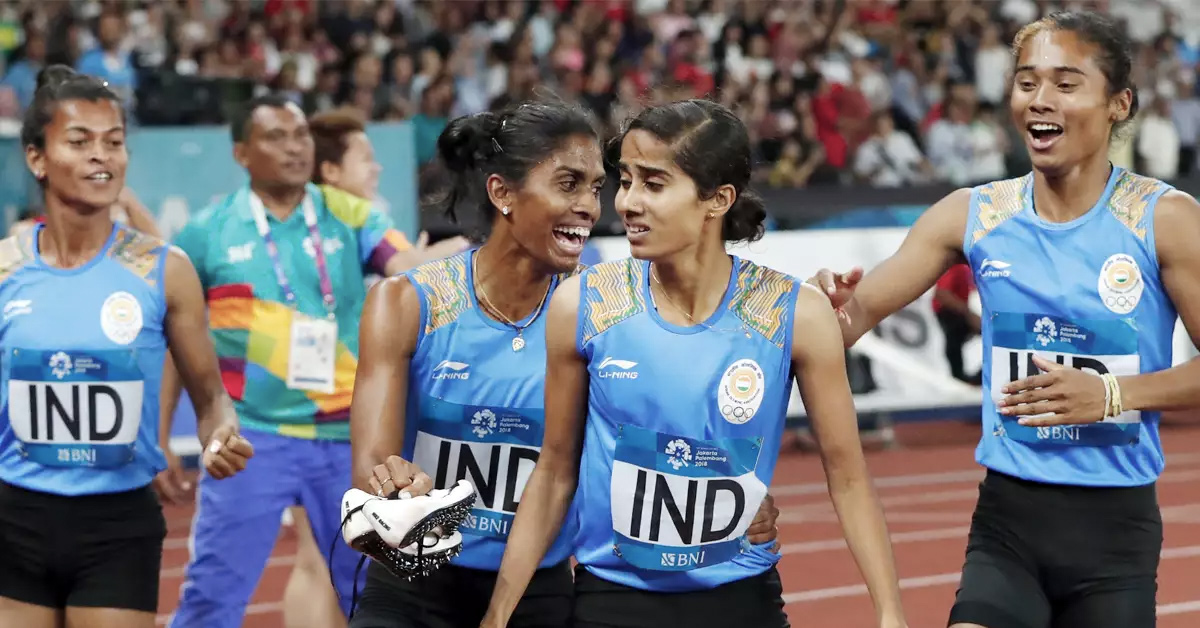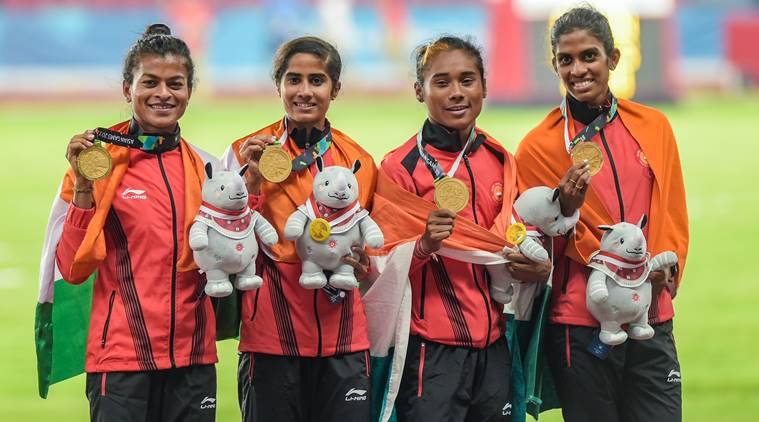Athletics
Improved timings crucial for a 'befitting' Olympics succes in women's 4x400m

India's narratives at the Olympics in track-and-field events comprise vivid visuals of so-close-yet-so-far moments. It won’t be wrong to say that Milkha Singh’s sprint at the 1960 Rome Olympics was one of the most important moments in Indian sports history. The Flying Sikh is remembered for his fourth-place finish in the 400m run in the 1960 games. Asian Games gold medalist Gurbachan Sigh Randhawa finished fifth in the 110 m hurdle finals at the 1964 Tokyo Olympics. The most disappointing memory has been that of PT Usha, the golden girl of Indian athletics. In 1984, she lost on an Olympic medal just by 1/100th of a second finishing fourth, and the list goes on.
While such athletes have been reared probably once in a decade, India has a quite interesting chronicle at the Olympics when it comes to women's 4x400 relay competition and if everything falls in place, the nation could hope a for befitting success in this particular event.
If we look into the Asian Games track record of the Indian women's team, they have an impressive story to tell with medal finishes in every edition since 1982 - six gold medals and four silver medals.
The 1982 Asian Games was the starting point of many of the sports in India and so was 4x400 metre relay races. India introduced several sports in the 1982 Asian Games in New Delhi and India’s journey of 4x400m started there. Long before that, India’s first Asian Games gold medal by a woman in track event came from Kamaljeet Sandhu in 400m at 1970, it was followed by another gold by Geeta Zutshi in 800m in 1978. This could only imply India never had two great sprinters for relay during the same point of time. But in 1982 Asian Games, the country finally had more than one talented player at the same time with Valasamma winning 400m hurdles gold medal, Geeta Zutshi winning medals in 800m and Padmini Thomas winning in 400m, PT Usha winning medals in 100m, 200m. India formed its first 4x400m relay team (and also 4x100m relay team) which yielded a gold.
The turning point came in 1984 Los Angeles Olympics when Shiny Wilson made it to the semifinals in 800m, PT Usha finishing 4th in 400m and finally India making it to the 4x400m relay final with a team comprising Shiny, Usha, Valasama and Vandhana Rao. The result was right in front of our eyes, as they finished 7th. Though technically it didn't sound like a big achievement but as a country who just started to produce results in women sports - this was a morale booster. One will always turn back and look LA Olympics for things women’s track and field athlete achieved.
If we delve into the history of the relay at the Olympics, it can be seen that the marquee event of 4x100m relay started in 1912 for men's and women's in 1928. However, the modern form of relay 4x400 meter for women was introduced in 1972.
The Indian women's team participated for the first time at the relay in 1984, where they finished 7th in the finals. Seventh in the semifinals of 1984, and 7th in the finals of 2004. Besides, no teams were fielded in 1992, 2000, 2012. In 1996, the Indian team were disqualified, while in 2008 and 2016, they failed to qualify in the finals.
India's best-ever- performance in women's relay event came in2004 Athens Olympics when the team comprising Rajwinder Kaur, KM Beenamol, Chitra K Soman and anchor Manjit Kaur set a new national record time of 3:26.89 in heat to qualify for finals. India finished third behind favourites USA (3:23.79) and hosts Greece (3:26.70) to qualify for the finals and finished 7th in the final.
Also read: When the Olympic gold medallist cried for PT Usha
So does that mean India has one of the world's best Women's 4x400m relay team? The answer is no. Though India has won five gold medals in Asian Games, in reality, as per timing - India is not even the best in Asia. Asian record stands at 3:24:28 held by China, while the world record stands at 3:15.17 held by the erstwhile Soviet Union.
Despite not being the best in Asia, the Indian team holds a lot of hope in their eyes and have enough gunpowder to shine at the world stage, probably at the Olympics. But for that to happen, some severe number crunching needs to be done by our athletes.
To put things in perspective, the 4x400m women's relay was won by the USA team, one of the most dominant forces who have won six gold medals in Olympics so far. Their final timing was recorder at 3:18.92. Breaking down each of the four contestant's timing, the numbers were recorded: 400m - 49.51, 800m - 1:39.29 (50 seconds approx.), 1200m - 2:28.72 (49 seconds approx.), 1600m - 3:18.92 (50 seconds approx.) This proves the fact that all the runners from the team USA were pulling off timings between 49-51 seconds to win the gold medal.

On the contrary, on analysing the records of the present Indian women's 4x400m relay team, the personal best (400m individual race) of each of the athletes are: Hima Das - 50.79, followed by VK Vismaya - 52.12s, Poovama - 51.73 and Saritaben Gayakwad - 53.24.
Technically speaking, in the relay with only one athlete starts from the usual position and other three starts in running position which eventually takes less time to reach the finishing mark. Going by this logic, can we expect all our athletes can make a sub 50 timing? That looks too unrealistic at the moment, but a 51 sub (approx below 3:24:00) by all four can certainly give a new national record and a top-4 finish or certainly a medal.
While a lot has to be done by the women to win the event, the Indian mixed team, however, looks better positioned and confident to finish in top-5 at the Olympics. The mixed team's timing registered by Mohamed Anas, Vismaya, Jisna Mathew and Noah Normal Tom at the World Championships in 2019 was 3:15.77, which is already in 12th fastest time in this event ever. India will have hopes high at the Olympics if Hima comes back in the team Vismaya and Anas remain consistent.
Also read: Forgotten Women | 5 decades before Hima Das, an Indian woman brought the country gold in Asiad

